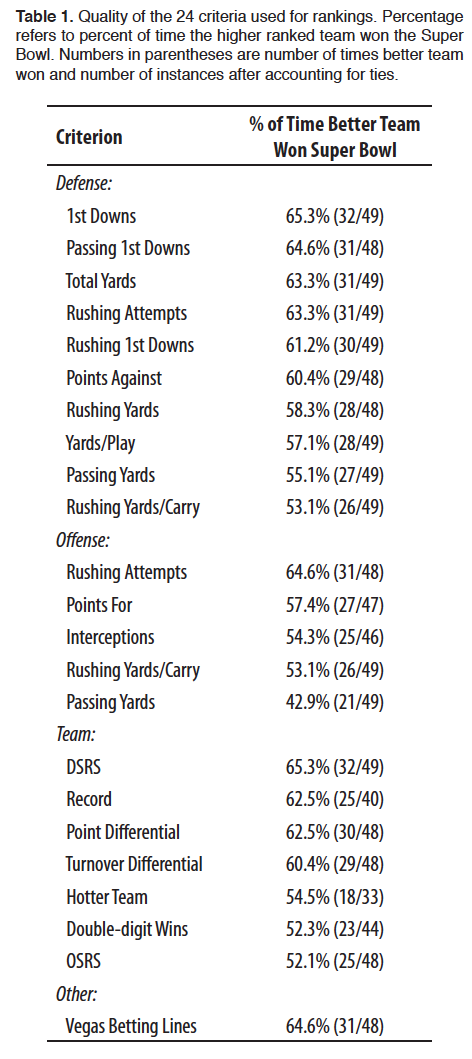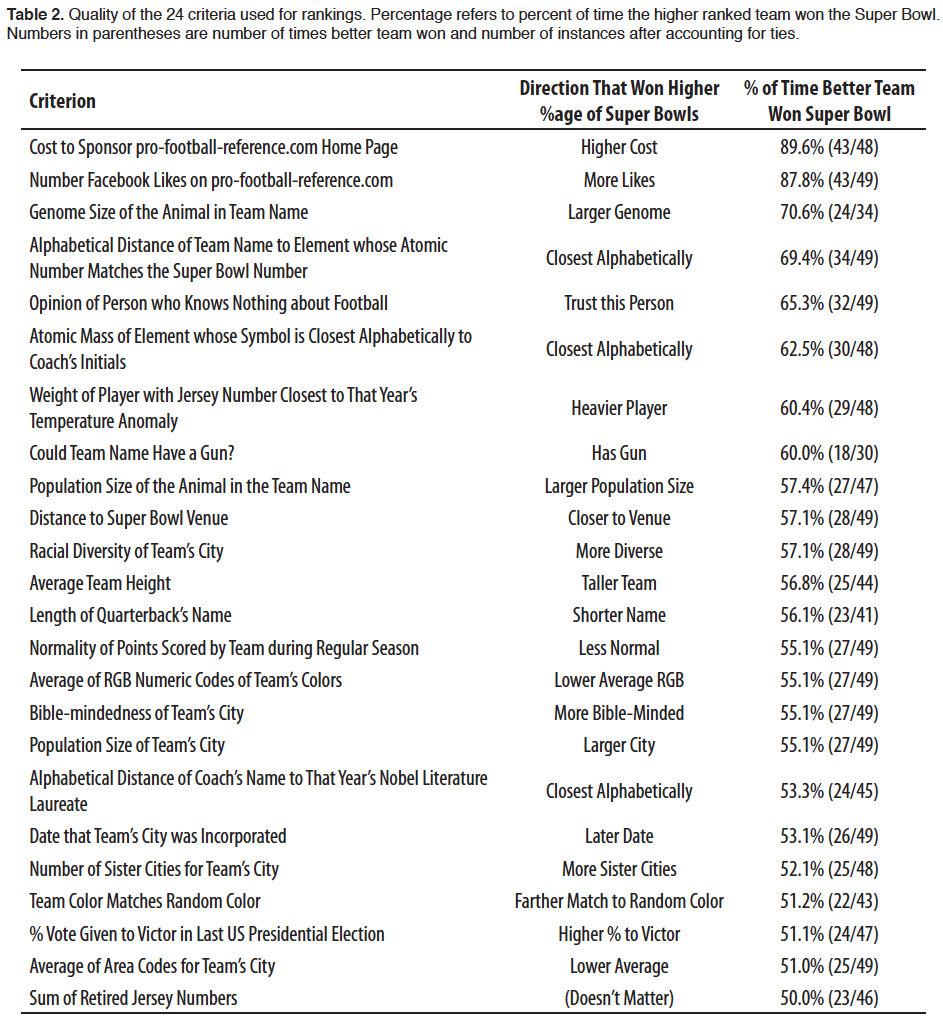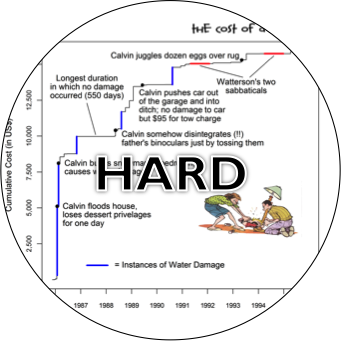
Tweet
February 4, 2016
Proceedings of the Natural Institute of Science | Volume 3 | HARD 1
Some updated stats on the Super Bowl and our annual, precise prediction
PNIS Editorial Staff1
1 - Editor, PNIS
Last year, we used a very complicated statistical approach to predict who would win Super Bowl 49 between the New England Patriots and the Seattle Seahawks. Although our prediction turned out to be wrong, we still had the utmost confidence in our model because we're scientists and that's what we do. So we decided to update our parameters and give it another shot for Super Bowl 50 between the Denver Broncos and the Carolina Panthers.
Our model determined which team performed better in 24 important criteria, such as, which team scored more points in the regular season. Then we just figured out which team was better in more categories (like we said, a very complicated statistical approach).
We went a little further by looking at all of the other previous Super Bowls to determine how often the better team for a given criterion won (e.g., the team that scored more points won 56.5% of the past Super Bowls). We then used this percentage as a weighting factor to get a bit more fine-tuned outcome (which also turned out to be wrong).
We've updated our criteria for this year by including Super Bowl 49. And here are those stats:

Explanations of categories can be found in our original post last year, but you can see that defense is pretty important.
Because we are a scientific journal named, in part, after the male reproductive organ, we also looked at some absurd predictors of the Super Bowl. For example, does the team whose quarterback have the shortest name win more Super Bowls? (Answer: yes, about 55% of the time) We updated the statistics for the absurd predictors using data from Super Bowl 49:

Here is a link to last year's paper explaining these criteria. The important thing to note is that the team name that has the largest genome wins just over 70% of the Super Bowls. It worked last year when the Patriots (human genome size = 3.1 pg) beat the Seahawks (sharp-shinned hawk genome size = 1.55 pg).
With these updated metrics, we looked at whether the Broncos or Panthers were the better team at each of the 24 serious criteria and each of the 24 absurd criteria. Then, we made four separate predictions: 1) adding up number of serious categories each team was better at, 2) adding up weighted serious scores for each team, 3) adding up number of absurd categories each team was better at, and 4) adding up weighted absurd scores for each team. Finally, to get a more realistic prediction for final score, we multiplied number of categories, or sum of weighted scores by 2.
Prediction based on serious criteria:
Denver Broncos 26, Carolina Panthers 22
Denver is ranked higher in 13 criteria, including the all important defensive categories, while Carolina is ranked higher in 11 criteria (there were no ties). This was a fairly even matchup; the last time two teams were this close in categories was Super Bowl 48 when Seattle beat Denver.
Prediction based on serious criteria (with weighting factor):
Denver Broncos 24.05, Carolina Panthers 23.95
Wow, that's close! According to our model, this is the third-closest matchup in Super Bowl history.
Prediction based on absurd criteria:
Denver Broncos 24, Carolina Panthers 20
Denver wins 12 categories (including having a larger genome size, having the most sister cities, and having a coach whose name was alphabetically closer to the 2015 Nobel Literature Laureate). Carolina wins 10 categories (including being the most bible-minded city, having the less normally distributed points scored data, and having the more racially diverse city). There were two ties.
Prediction based on absurd criteria (with weighting factor):
Denver Broncos 24.27, Carolina Panthers 23.73
For our final prediction, we averaged all 4 of our model outputs:
Denver Broncos 24.58, Carolina Panthers 22.42
Bad news Carolina fans. However, one glimmer of hope for Carolina is that our Person-who-knows-nothing-about-football, who correctly predicted 65.3% of past Super Bowls (including last years), picked Carolina. (Another glimmer of hope is that we're a scientific journal, not a sports magazine, and have no idea what we're talking about). Please enjoy the game, and be sure to share this useless trivia at your Super Bowl Party!
More Articles Below!

Proceedings of the Natural Institute of Science (PNIS) by https://instsci.org/ is licensed under a Creative Commons Attribution-ShareAlike 4.0 International License.


